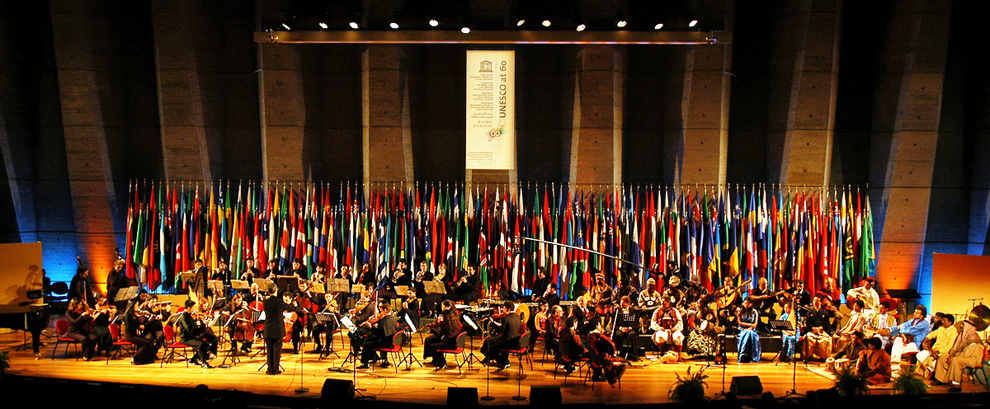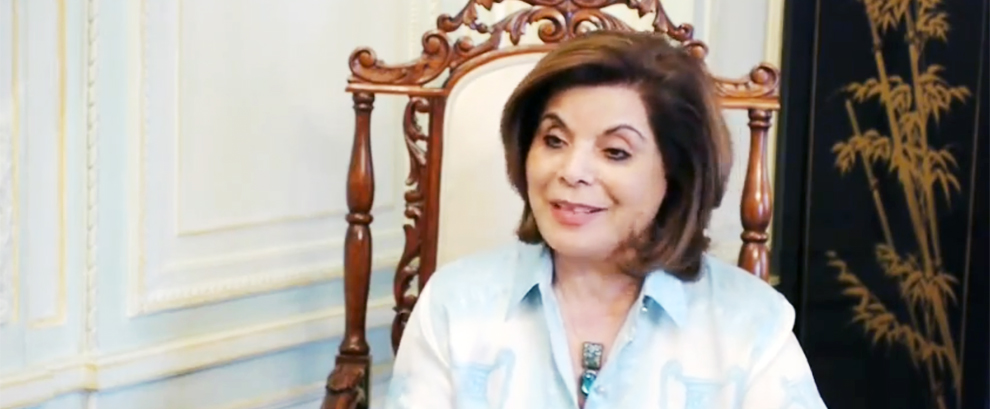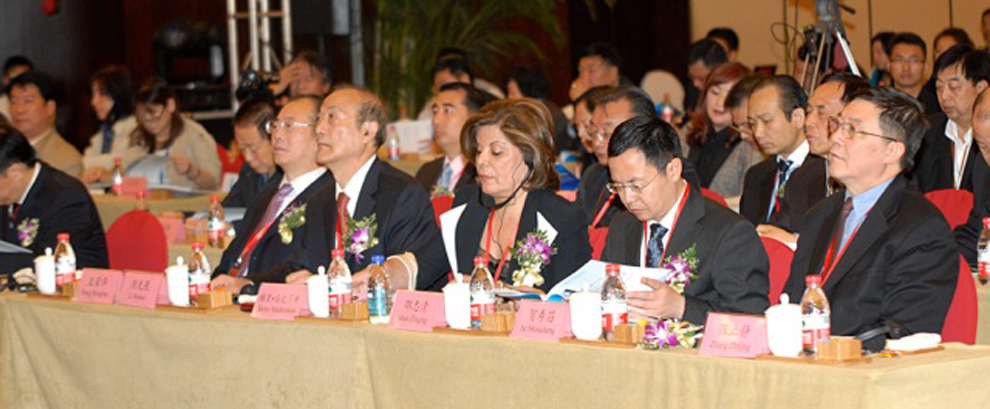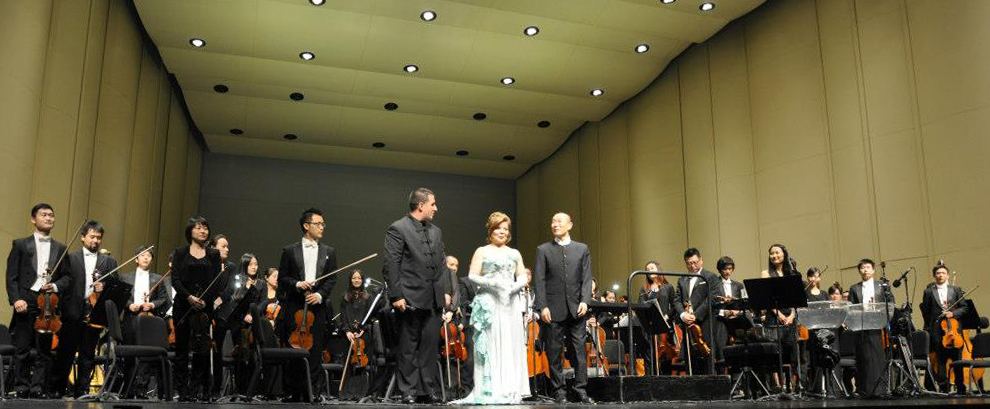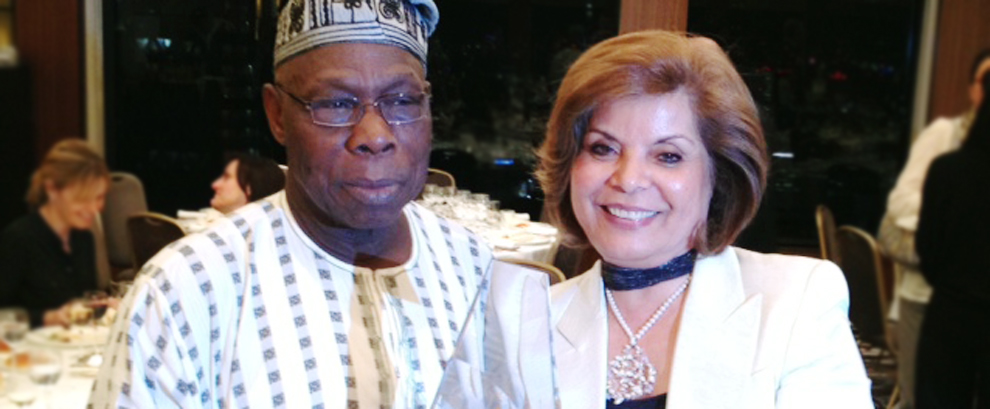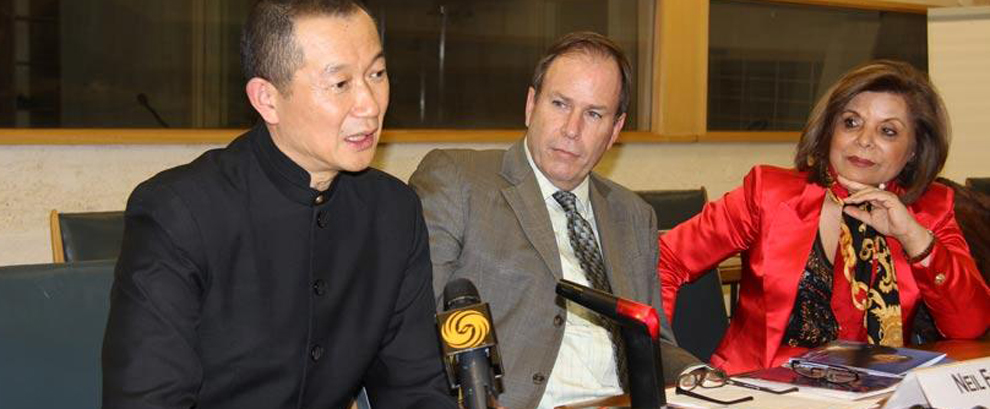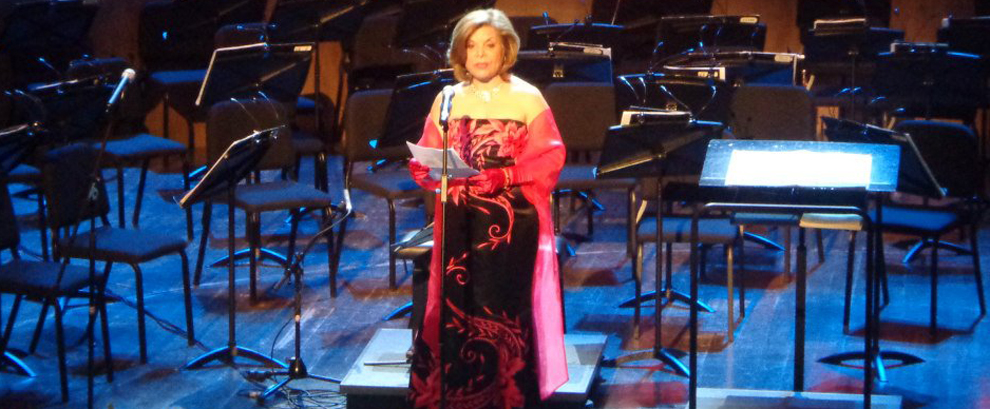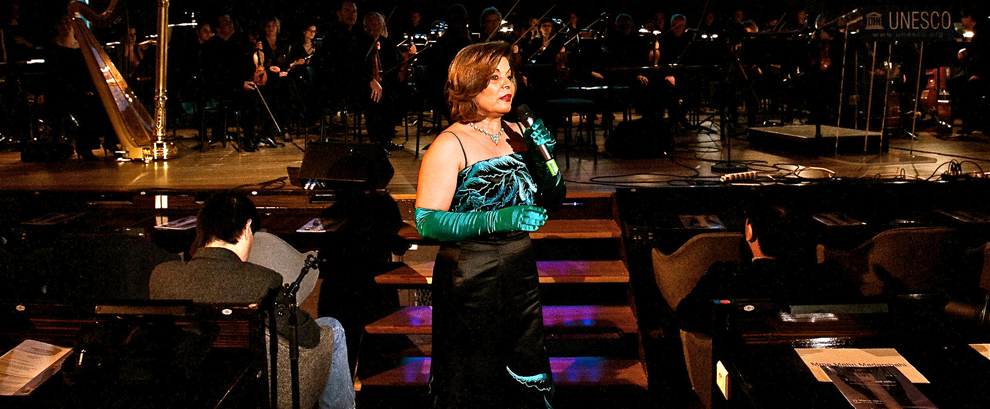Q. Why do you think music can play a role in environmental awareness?
I am a great believer in a few basic principal: One of these principal is that people are motivated and empowered to create, to shape their environment and to shape their destiny not by dictates governing economic growth but by priorities they establish and objectives they follow for their well-beings . second principal relates to a level of general acceptability that achieving sustainable development will require balancing environmental, societal, and economic considerations in the pursuit of development and an improved quality of life. Thus, environmental protection should not only be of concern to the government, but it should be a fundamental responsibility of all people and that individuals and communities have the right to live in a clean and healthy environment.
So, if we agree on these basic principals then a natural conclusion may drive from it that the First consideration of any effort aimed at forming an environmental awareness among the public and a conservation ethic is to help people discover the resonance between these broader goals and their personal goals. Nevertheless, the understandings of, and visions for, sustainability will be different for each one among us and so far no “single route” to sustainable development has been proposed by development experts. We , therefore, decided to fill this vacuum by finding the most common means of communications among people of the North, South, East and West of the universe through a common language which can adhere to the heart and soul of its users. What was better than “music”?
Q. How you intent to demonstrate the importance of music as a learning tool?
It has generally been accepted that achieving sustainable development requires balancing environmental, societal, cultural and economic considerations in the pursuit of development and an improved quality of life. To achieve these goals there is an argument in favor of interdisciplinary framework for cooperation integrating important role for the artists in the filed of environmental studies. . Conversely, an environmental approach must be introduced within art studies and a serious interdisciplinary cooperation on environmental issues should involve artists, scientists, humanists, planners, activists, and governmental bodies.
Musicians and artists can play a major role in mediating between the community and scientists, and between citizens and their environment. It is a proven fact that even the most proficient scientist would not succeed in communicating the severity of an environmental problem to the public, because she or he would not know how to evoke a mixed response from the audience, or provoke a deep sense of belonging, while a simple composition can go a long way.
Q. How education could help changing behavioral and cultural trends and assist in a smooth transition to a more savvy attitude towards sustainability and protection of environment
Not an easy question to answer in a few words. I guess, in taking those steps towards helping the sustainability of our environment we should forget the question of “What’s in it for me?”. Effective education for sustainable development through music requires a long-term commitment to winning the hearts and minds of reasonable people everywhere. Now is the time to create a cultural infrastructure and policy for the twenty-first century. The stakes have never been higher.
We demonstrated in practice during a day –long discussion on “Music a Catalyst for Environmental Awareness” at the International Conference Centre in Geneva together with 45 experts, politicians, visionaries, environmentalists and musicians, how the undiscovered and under estimated educational role of music could give rise to fundamental changes in an individual learning curb. The evening multi-cultural concert with Prague Philharmonic Orchestra under the direction of the world renown Conductor, Maestro Constantine Orbelian accompanied by a number of acclaimed soloists from 12 countries created an unforgettable musical dialogue with nature and earth that hardly could be forgotten. Those among you who attended these unforgettable open classes left with the enthusiasm of doing something good for somebody else.
Q. What other events your Association has organized or this is the first one?
The Association since its inception in 2004 has pursued the objective of promoting the dialogue with music as a universal means of communication.
We have organized a great number of events in various countries including Nigeria, Moracco, Cuba, United States, France and other countries. In 2006 we were offered the 60th anniversary medal of UNESCO for our innovative approach to dialogue among civilizations. For more information, I invite you to consult our web site www.melodydialogue.org.


